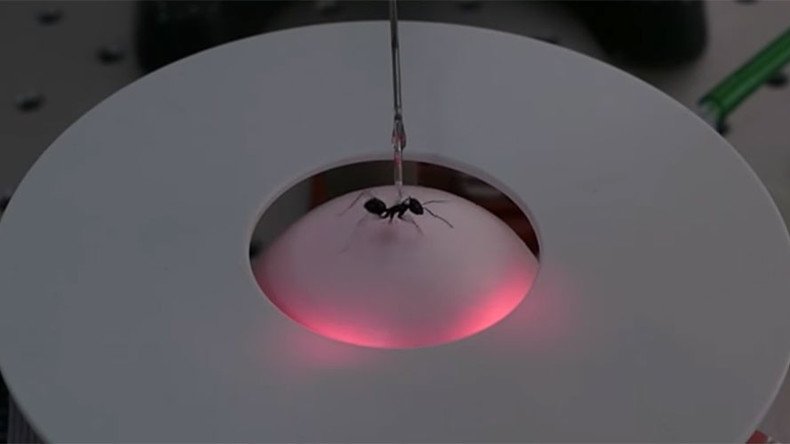Ant treadmill could be a game changer for mini robots, seriously (VIDEO)

Researchers in Germany have successfully tested a miniature treadmill built for ants with the hopes of deciphering the insects’ navigation capabilities, which could prove invaluable to the field of miniature robotics.
The ants were tethered to a support beam using a filament of dental floss, which was glued to their backs, but allowed them enough mobility to move freely on their spherical ‘treadmills.’
The team then placed the tethered ants on air-suspended Styrofoam balls, which were light enough to move in concert with the ants’ changes in direction, detected using the optical sensor from a computer mouse.
“Our new design enables us to study the fast-running and very quickly turning desert ants,” co-author of the study Matthias Wittlinger, a research fellow with the Institute of Neurobiology at Ulm University in Germany, told Live Science in an email.
The ants were captured 33 feet from their nest, having already established a route between a food source and their home. Once placed on the treadmill, the ants used the position of the sun as a compass while calculating the distance to the nest by counting their own strides.
READ MORE: Serious bees-ness: Pollinator drones could replace endangered insects
“The study’s findings showed for the first time that when ants realize that they’re lost, they switch to ‘search mode,’” Wittlinger added. ‘Search mode’ is when they slow down and begin a process of discovery within their surroundings by walking in a looping pattern.
By studying how the ants behave when they are lost, as well as their natural inclination towards conservation of energy and efficient travel, researchers could build more effective navigation systems for miniature robots such as artificial pollinators.












